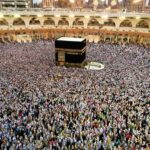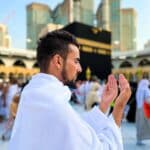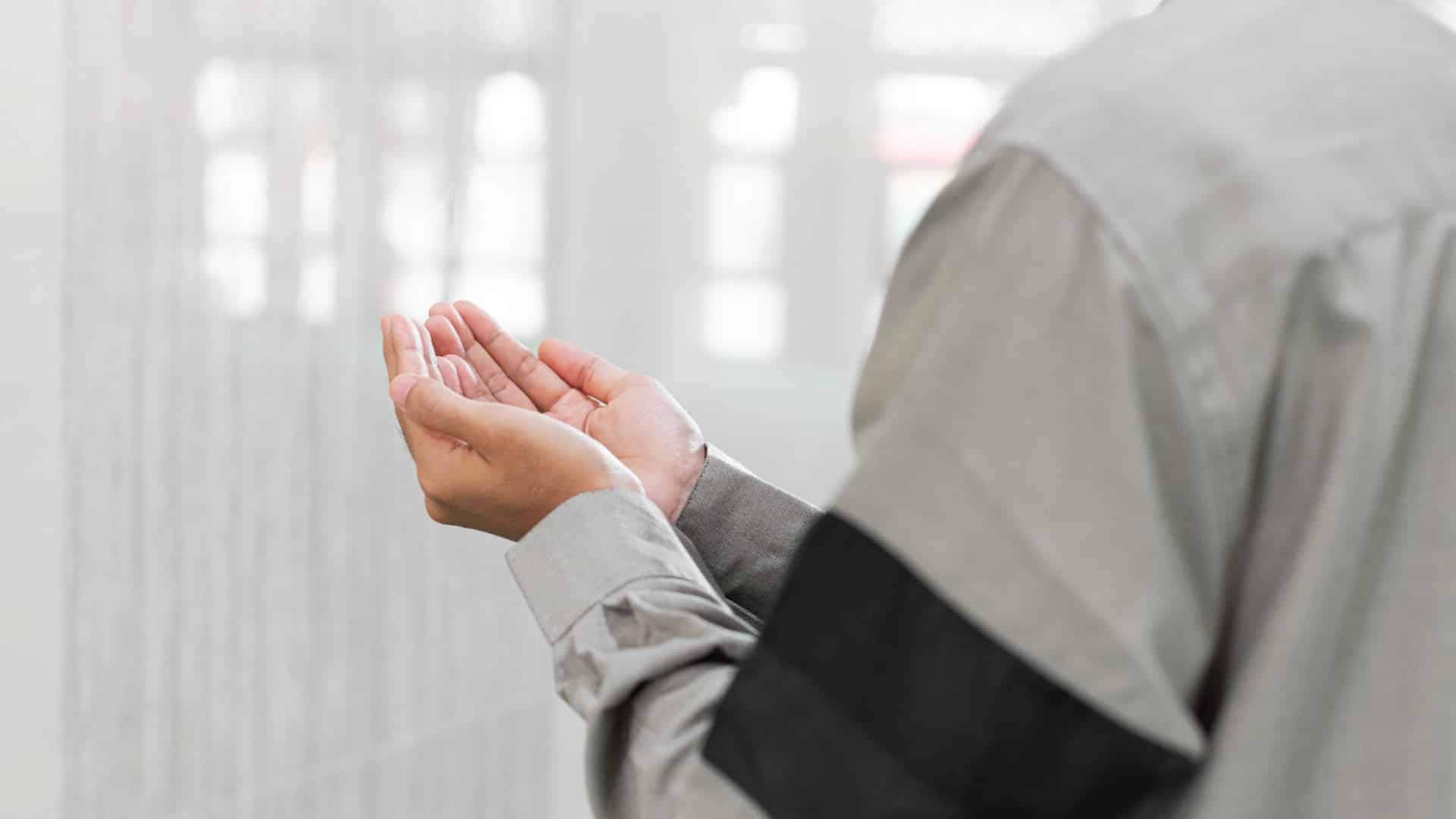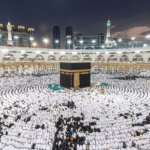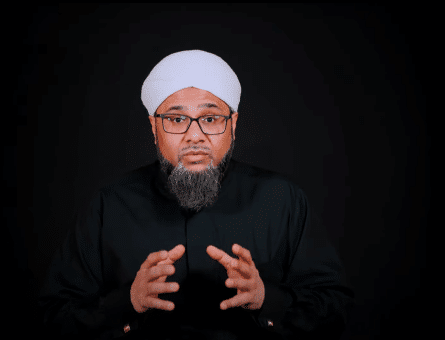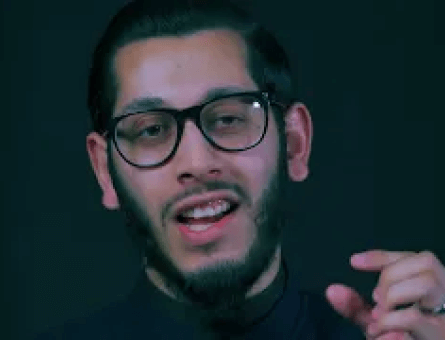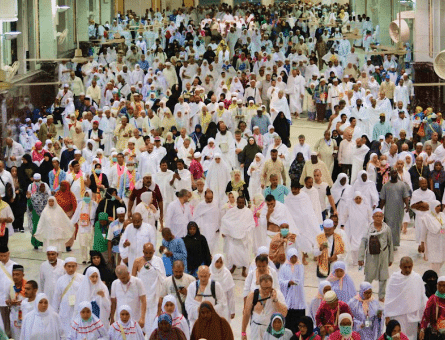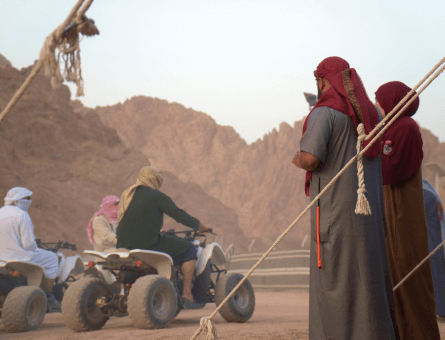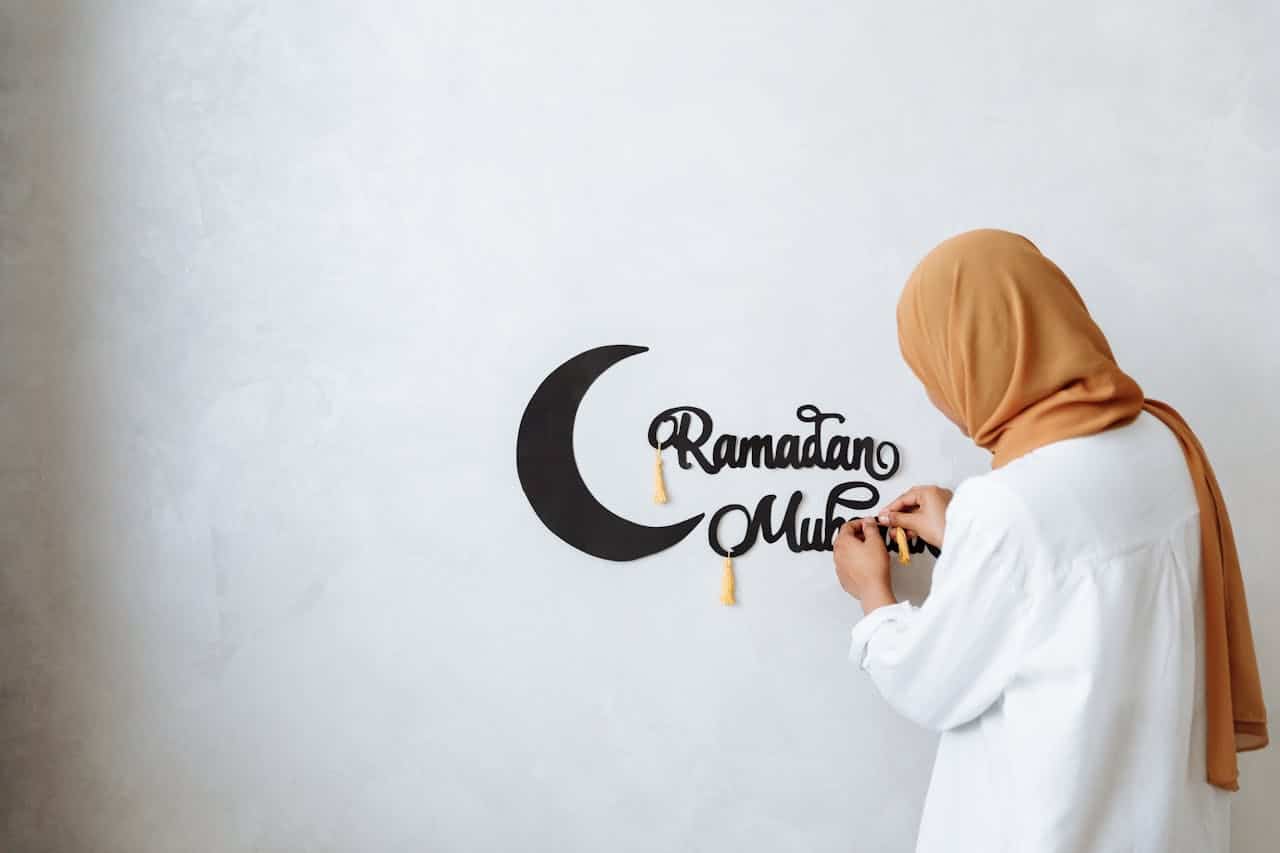Death During Ramadan – What happens if someone dies during Ramadan?
Death is indeed scary, but this Dunya is even more frightening. When a person understands that Allah SWT made this world a test for the believers and it isn’t one’s real home, they find true and eternal peace in their hearts.
Ramadan is considered one of the holiest months in Islam and is the ideal time to ask for forgiveness and mercy from the Almighty.
Prophet Muhammad (PBUH) said, “When the month of Ramadan begins, the gates of the heaven are opened, and the gates of Hellfire are closed, and the devils are ‘chained.” (Muslim)
So, have you ever wondered what exactly happens when a person dies during Ramadan and how this time of year affects funeral practices, condolences, and grieving?
In this article, we will discuss the significance and virtues of death during Ramadan. So, without any further ado, let’s begin.
What Happens If a Muslim Dies During Ramadan?
There are several myths about what happens to a believer if they die during the month of Ramadan. Many Islamic scholars believe that death during Ramadan is no less than a blessing.
Prophet Muhammad (PBUH) said,
“When the month of Ramadan begins, the gates of the heaven are opened, and the gates of Hellfire are closed, and the devils are chained. (Sahih Al Bukhari 1800, Sahih Muslim 1079)”
Muslims believe that Allah SWT doesn’t favour any person over another. In the eyes of the Almighty, all people are equal, and so one shouldn’t be considered free of sins or holier if one pass away during Ramadan.
What Is Ramadan?
Ramadan, the ninth month of the Islamic calendar, is the month of fasting when Muslims abstain from things considered impure for the mind, body, and soul.
Muslims in Ramadan refrain from drinking, eating, and having impure thoughts from dawn till dusk. This gives one the chance to focus on worshipping Allah SWT and strengthen their faith.
Virtues of Dying During Ramadan
Concerning the virtue of one who dies while fasting, it was narrated that the Prophet (PBUH) said: “Whoever says La ilaha illa-Allah (there is no god but Allah), seeking the Face of Allah and that was his final action, will enter Paradise
Whoever fasts one day seeking the Face of Allah, and that was his final action, will enter Paradise. Whoever gives charity seeking the Face of Allah, which was his final action, will enter Paradise.” Narrated by Imam Ahmad, 22813, from the hadith of Hudhayfah (may Allah be pleased with him)
Abu Hurairah (RA) narrated a hadith of Prophet Muhammad (PBUH): “When the month of Ramadan begins, the gates of the heaven are opened, and the gates of Hellfire are closed, and the devils are chained.” (Sahih Al Bukhari 1800, Sahih Muslim 1079)
In light of the aforementioned hadith, during the month of Ramadan, the gates of Heaven are opened, and the doors to hell are closed. This indicates that when a person dies during the month of Ramadan, their soul goes straight to Jannah and is saved from the questioning of the grave. However, there are mixed opinions about this.
Abd-Allah ibn ‘Abbas (RA) said:
The Messenger (PBUH) of Allah SWT said: ‘The nations were shown to me, and I saw a prophet with a small band of followers, and a prophet with one or two men with him, and a prophet who had no one with him. Then I was shown a huge multitude, and I thought they were my ummah, but it was said to me: ‘This is Musa (RA) and his people. But look at the horizon.’ So I looked and saw a huge multitude, and it was said to me: ‘Look at the other horizon,’ and there was (another) huge multitude. And it was said to me: ‘This is your ummah, and with them are seventy thousand who will enter Paradise without being brought to account or punished.”” Then he got up and went into his house, and the people disputed about those who entered Paradise without being brought to account or being punished. Some of them said: ‘Perhaps they are the ones who accompanied the Messenger (PBUH) of Allah SWT.’ Some of them said: ‘Perhaps they are the ones who were born in Islam and did not associate anything with Allah.’ And they mentioned other things. The Messenger (PBUH) of Allah SWT came out to them and said: ‘What are you disputing about?’ They told him, and he said: ‘They are the ones who did not seek ruqyah or believe in bird omens, and they put their trust in their Lord.’ ‘Ukashah ibn Mihsan stood up and said: ‘Pray to Allah to make me one of them.’ He (SAW) said: ‘You will be one of them.’ Another man stood up and said: ‘Pray to Allah to make me one of them.’ He said: ‘‘Ukashah has beaten you to it.’ (Al-Bukhari, 5705;Muslim, 220)
Even though Prophet Muhammad (PBUH) didn’t precisely say that amongst the seventy thousand aren’t those who die during Ramadan. Rather they are the elite of the believers who died while doing righteous deeds.
What Does the Quran Say about Death in Islam?
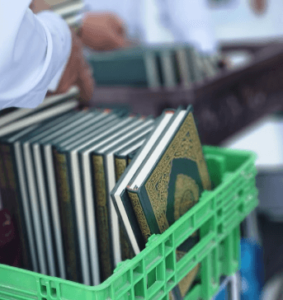
“Everyone shall taste Death. And only on the day of resurrection shall you be paid your wages in full. And whoever is removed away from the fire and admitted to Paradise, this person is indeed successful. The life of this world is only the enjoyment of deception.” [Holy Quran: 3:185]
“Truly, from God, we come and, truly, to God is our return.” [Holy Quran, 2:156]
“Say, ‘If the abode of the Hereafter were exclusively for you with Allah, and not for other people, then long for death, should you be truthful.” [Holy Quran, 2:94]
“But [acceptance of] repentance is not for those who go on committing misdeeds: when death approaches any of them, he says, ‘I repent now.’ Nor is it for those who die while they are faithless. For such, We have prepared a painful punishment.” [Holy Quran, 4:18]
“And spend [in the way of Allah] from what We have provided you before death approaches one of you, and he says, ‘My Lord, if only You would delay me for a brief term so I would give charity and be among the righteous.’ But never will Allah delay a soul when its time has come. And Allah is Acquainted with what you do.” [Holy Quran, 63:10-11]
“Wherever you may be, death will overtake you, even if you were in fortified towers. If any good befalls them, they say, ‘This is from Allah,’ and when an ill befalls them, they say, ‘This is from you.’ Say, ‘All is from Allah.’ What is the matter with these people that they would not understand any matter?”
What Happens When a Muslim Dies?
Death is one of the harshest realities of life and the most frightening thought that one can have. However, if a person truly understands death and has strong faith in the mercy of the Almighty, they will no longer be afraid of death.
According to Islamic scriptures, this world (Dunya) is temporary (Fani); it is nothing but a test for the believers, with the reward being either Heaven or hell. In Islamic tradition, when a person dies, Allah SWT sends the angel of death, Azreal (AS), to retrieve the soul from the fragile human body.
“Allah takes the souls at the time of their death.”[Holy Quran, 39:42]
After a person dies, their family starts the preparation for Ghusl (the full-body purification ritual. After this, the Janaza (dead body) is wrapped in Kafan (two sheets of pure white cloth) and is taken to the Masjid (Mosque) where Namaz-e-Janaza is prayed. After the completion of the prayer, the body is carried to a nearby graveyard where it is buried six feet underground.
The Janaza is left all alone in an enclosed grave when the two angels of death Munkar and Nakir visit the dead for accountability. These angels are assigned to test the faith of the dead within the grave. It is believed that as soon as Munkar and Nakir enter the grave, they make you sit up and ask the following questions to test your Imaan (faith):
- Who is your lord?
- Who is your prophet?
- What is your faith?
The answers to the aforementioned questions determine whether your soul rests in peace until the day of Judgement or you are severely punished until Allah SWT commands otherwise. This is also known as the “Stage of Barzakh,” the barrier or veil that stands between two things that aren’t able to meet – the Hereafter and the living.
“That I might do righteousness in that which I left behind. No! It is only a word he is saying, and behind them is a barrier until the Day they are resurrected. “[Holy Quran, 23:100]
What Is the Purpose of Life in Islam?
Allah SWT in the Holy Quran states, “[Remember] when your Lord extracted from the loins of Adam’s children their descendants and made them testify (saying): ‘Am I not your Lord?’ They said: ‘Yes, we testify to it.’ [This was] in case you say on the Day of Judgment: ‘We were unaware of this.’ Or you say: “It was our ancestors who worshipped others besides God, and we are only their descendants. Will you then destroy us for what those falsifiers did?” [Holy Quran, 7:172-173]
From the above-mentioned verse, we can clearly understand that when Allah SWT created all souls, the first thing He did was take an oath from all humans to testify to His Authority, Power, and Lordship. This means that the purpose of life is to understand and believe that Allah SWT is the Creator of this universe, and we all must worship Him and only Him.
“Did you think that We had created you in play (without any purpose) and that you would not be brought back to Us?” [Holy Quran 23:115]
“I have created the jinn and humankind only for My worship.” [Holy Quran, 51:56]
Furthermore, Allah SWT in the Holy Quran says, “And to Allah belongs the dominion of the heavens and the earth, and Allah is over all things competent. Indeed, in the creation of the heavens and the earth and the alternation of the night and the day are signs for those of understanding. Who remember Allah while standing or sitting or [lying] on their sides and give thought to the creation of the heavens and the earth, [saying], ‘Our Lord, You did not create this aimlessly; exalted are You [above such a thing]; then protect us from the punishment of the Fire.'”[Holy Quran 3: 189-191]
The Messenger (PBUH) of Allah SWT said, “When a man dies, his deeds come to an end except for three things: Sadaqah Jariyah (a continuous charity), a knowledge which is beneficial, or a virtuous descendant who prays for him.” (Muslim)
Summing it all up, this worldly life is temporary, and its ultimate purpose is to worship Allah SWT and seek His pleasure. The Sunnah of Prophet Muhammad (PBUH) and the Holy Quran are the best ways to fulfill this purpose and give meaning to life.
Hadiths about Ramadan
Abu Hurairah (RA) narrated that Prophet Muhammad (PBUH) said, “When the month of Ramadan begins, the gates of the heaven are opened, and the gates of Hellfire are closed, and the devils are chained.” (Sahih Al Bukhari 1800, Sahih Muslim 1079)
“We can deduce from this Hadith that the one who passes away in Ramadan will be safeguarded from punishment by the grace of almighty Allah.” (fatawa Mahmudiyyah 1/630) (Ahsanul fatawa 4/208)
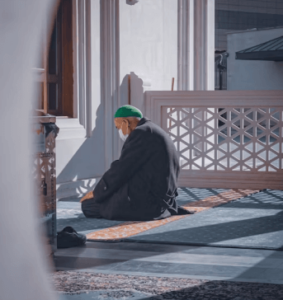
“Every action a son of Adam does shall be multiplied—a good action by ten times its value, up to 700 times. Allah says: With the exception of fasting, which belongs to Me, and I reward it accordingly. For, one abandons his desire and food for My sake. There are two occasions of joy for a fasting person: one when he breaks his fast, and the other when he meets his Lord, and the (bad) breath (of a fasting person) is better in the sight of Allah than the fragrance of musk.” (Sahih Al-Bukhari)
“Anyone who fasts for one day for Allah SWT’s sake, Allah SWT will keep his face away from the Hellfire for (a distance covered by a journey of) seventy years.” (Hadith reported by Al-Bukhari and Muslim)
How Can Muslims Make the Most of Ramadan?
Leaving a person feeling more grateful, grounded, and devoted to Islam and Allah (SWT), the act of fasting allows one to understand the suffering and pain of the underprivileged.
To make the most of Ramadan, Prophet Muhammad (PBUH) has instructed Muslims to pray Tahajjud, give Zakat (or Sadaqah), help those in need, observe fasts, recite the Holy Quran, and pray five times a day.
Read the Holy Quran daily, increase your rememberance of Allah (SWT), Give extra charity, control your tongue (don’t lie, gossip, curse and backbite), do not over eat.
Summary – Death During Ramadan
At the end of the article, we would like to inform you that the promise of entering Jannah upon death during the sacred month of Ramadan is for those who spend their lives in a righteous way and breathe their last while performing a good deed, such as fasting.
However, this isn’t only about dying during the month of fasting but applies even to those who pass away outside of Ramadan. A person should always remember that worldly life is temporary and that in the Hereafter, they will be held accountable for all their deeds. Therefore, one should spend their life worshipping and seeking forgiveness from Allah SWT.
Explore The New Pilgrim App
The Ultimate App
for Hajj and Umrah!




